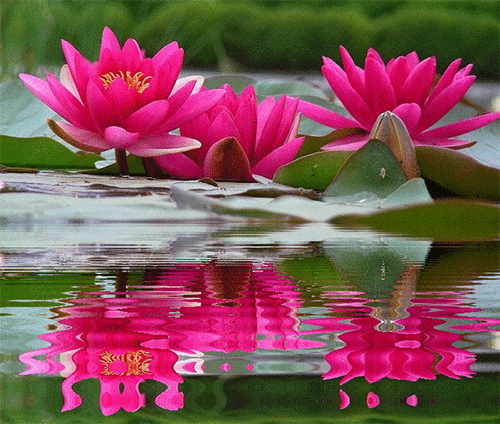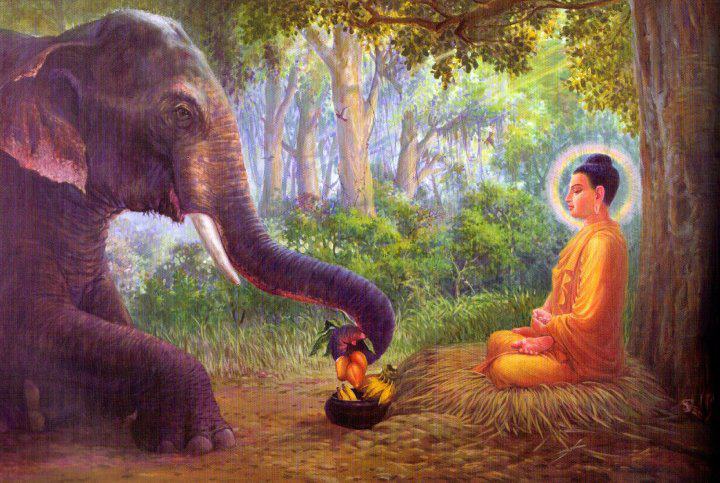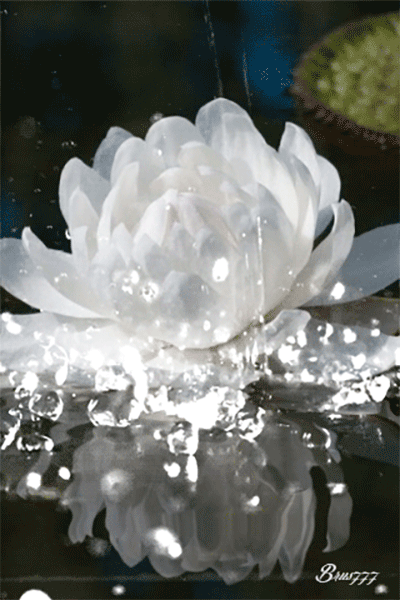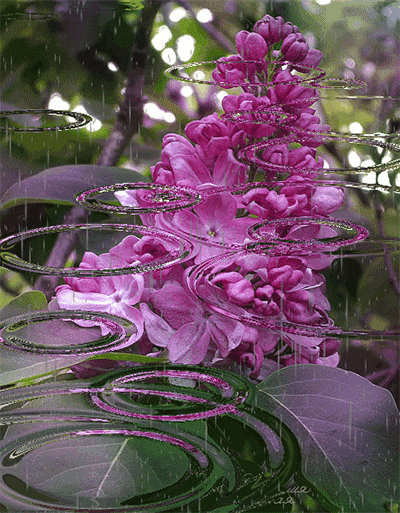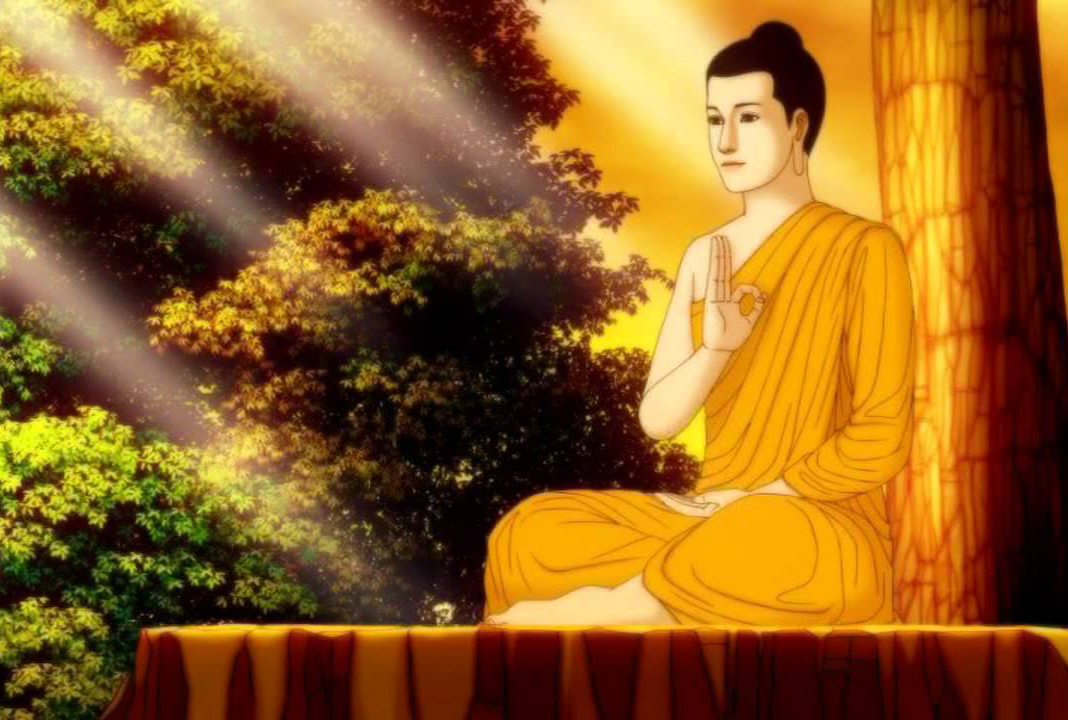
Verse 79: He who drinks in the Dhamma lives happily with a serene mind; the wise man always takes delight in the Dhamma (Bodhipakkhiya Dhamma) expounded by the Noble Ones (ariyas).
The Story of Thera Mahakappina
While residing at the Jetavana monastery, the Buddha uttered Verse (79) of this book, with reference to Thera Mahakappina.
Mahakappina was king of Kukkutavati. He had a queen named Anoja; he also had one thousand ministers to help him rule the country. One day, the king accompanied by those one thousand ministers, was out in the park. There, they met some merchants from Savatthi. On learning about the Buddha, the Dhamma, and the Samgha from these merchants the king and his ministers immediately set out for Savatthi.
On that day, when the Buddha surveyed the world with his supernormal power, he saw in his vision, Mahakappina and his ministers coming towards Savatthi. He also knew that they were due for arahatship. The Buddha went to a place one hundred and twenty yojanas away from Savatthi to meet them. There, he waited for them under a banyan tree on the bank of the river Candabhaga. King Mahakappina and his ministers came to the place where the Buddha was waiting for them. When they saw the Buddha, with six-coloured rays radiating from his body, they approached the Buddha and paid homage to him. The Buddha then delivered a discourse to them. After listening to the discourse the king and all his ministers attained Sotapatti Fruition, and they asked the Buddha to permit them to join the Order. The Buddha, reflecting on their past and finding that they had made offerings of yellow robes in a past existence, said to them, “Ehi bhikkhu”, and they all became bhikkhus.
Meanwhile, Queen Anoja, learning about the king’s departure for Savatthi, sent for the wives of the one thousand ministers, and together with them followed the king’s trail. They too came to the place where the Buddha was and seeing the Buddha with a halo of six colours, paid homage to him. All this time, the Buddha by exercising his supernormal power had made the king and his ministers invisible so that their wives did not see them. The queen therefore enquired where the king and his ministers were. The Buddha told the queen and her party to wait for a while and that the king would soon come with his ministers. The Buddha then delivered another discourse; at the end of this discourse the king and his ministers attained arahatship; the queen and the wives of the ministers attained Sotapatti Fruition. At that instant, the queen and her party saw the newly admitted bhikkhus and recognized them as their former husbands.
The ladies also asked permission from the Buddha to enter the Order of Bhikkhunis; so they were directed to go ahead to Savatthi. There they entered the Order and very soon they also attained arahatship. The Buddha then returned to the Jetavana monastery accompanied by one thousand bhikkhus.
At the Jetavana monastery, Thera Mahakappina while resting during the night or during the day would often say, “Oh, what happiness!” (Aho Sukham). The bhikkhus, hearing him saying this so many times a day told the Buddha about it. To them the Buddha replied, “My son Kappina having had the taste of the Dhamma lives happily with a serene mind; he is saying these words of exultation repeatedly with reference to Nibbana.”
Then the Buddha spoke in verse as follows:
Verse 79: He who drinks in the Dhamma lives happily with a serene mind; the wise man always takes delight in the Dhamma (Bodhipakkhiya Dhamma) expounded by the Noble Ones (ariyas).
Dhammapada Verse 79
Mahakappinatthera Vatthu
Dhammapiti sukham seti
vippasannena cetasa
ariyappavedite dhamme
sada ramati pandito.
Source: Tipitaka


